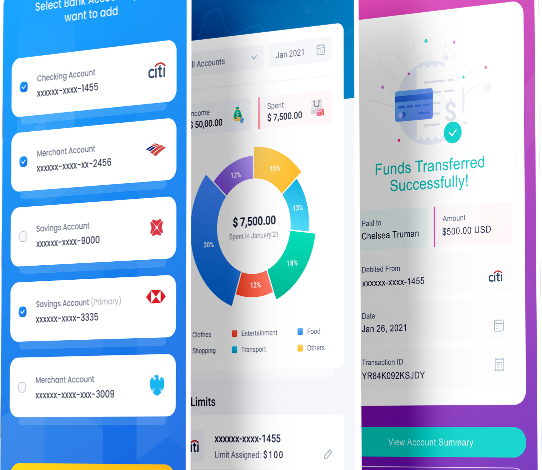How the Best Low Code Platform for Application Development Can Drive Digital Transformation

Digital transformation is no longer an option but a necessity for businesses looking to remain competitive. One of the most significant enablers of this transformation is the best low code platform for application development. These platforms offer an intuitive way to create applications that drive innovation, streamline processes, and meet business needs without requiring deep technical expertise.
In this article, we explore how adopting the best low code platform for application development can empower businesses to achieve digital transformation effectively and efficiently.
Understanding Low Code Development
Low code development is a modern approach to software creation that uses visual tools and pre-built templates to speed up the development process. Instead of writing lines of code, developers and even non-technical users can use drag-and-drop functionality to design applications.
Why Low Code Matters
Low code platforms are essential for businesses because:
- Faster Delivery: Applications can be built and deployed in weeks instead of months.
- Lower Costs: Reduces the need for large developer teams, lowering operational expenses.
- Enhanced Collaboration: Business and IT teams can work together seamlessly on the same platform.
- Adaptability: Applications can be updated quickly to meet evolving business needs.
The best low code platform for application development combines speed, simplicity, and scalability to support modern business goals.
Features of the Best Low Code Platform for Application Development
Choosing the right platform requires understanding the features that make a platform stand out. The best low code platform for application development includes the following features:
Drag-and-Drop Interface
A simple graphical interface makes application development intuitive. Users can visually map out their workflows and create applications without needing to write extensive code.
Pre-Built Templates and Modules
With ready-to-use templates, businesses can start projects quickly and customize them to fit their unique needs. This feature reduces the time needed to build applications from scratch.
Scalability
As businesses grow, their software needs change. A reliable low code platform should scale effortlessly, allowing organizations to add new functionalities or expand their applications as required.
Security Features
Ensuring the safety of data is non-negotiable. The best platforms provide robust security measures to protect sensitive information and comply with industry standards.
Benefits of Using the Top Low Code Platform
Adopting the top low code platform offers numerous advantages for businesses aiming to remain agile and innovative.
Speed
Development cycles are shortened significantly, enabling businesses to deploy solutions faster and stay ahead in a competitive market.
Cost Efficiency
By reducing reliance on traditional coding and large IT teams, businesses can save on development and maintenance costs.
Improved Accessibility
Low code platforms allow users from various departments, not just IT, to participate in app development. This democratization enhances cross-functional collaboration.
Continuous Improvement
Applications can be easily updated or modified based on user feedback, ensuring they remain relevant and functional.
The top low code platform empowers businesses to adapt quickly to market changes while maintaining operational efficiency.
Using a Low Code Platform for Enterprise Software Application Development
Large organizations often require highly customizable and secure applications. A low code platform for enterprise software application development addresses these needs effectively.
How Enterprises Benefit
- Custom Solutions: Enterprises can design software tailored to their specific processes.
- Enhanced Productivity: Employees can focus on innovation rather than repetitive coding tasks.
- Scalability: Applications can grow with the business, adapting to increased demands or complexity.
By leveraging a low code platform for enterprise software application development, enterprises can ensure long-term success and adaptability.
Key Considerations When Choosing a Low Code Platform
Selecting the best low code platform for application development is crucial for achieving desired outcomes. Here’s what businesses should look for:
User-Friendly Interface
The platform should be intuitive, enabling users across all departments to create applications without needing extensive technical skills.
Integration Capabilities
A good platform should easily connect with existing systems to ensure seamless workflows and data management.
Strong Security Measures
From data encryption to user access controls, security is a critical factor when evaluating a low code platform.
Support and Community
The availability of customer support and an active community can make a significant difference in solving problems or learning new features.
Best Practices for Implementing Low Code Platforms
To maximize the benefits of the best low code platform for application development, businesses should follow these best practices:
- Define Clear Objectives: Establish what you aim to achieve with the platform, such as faster delivery or improved collaboration.
- Involve Key Stakeholders: Collaboration between departments ensures that the final application meets all user needs.
- Train Your Team: Provide adequate training to empower users and developers to maximize the platform’s features.
- Start Small: Begin with a pilot project before scaling up to larger, enterprise-wide implementations.
- Measure Success: Continuously track metrics like development time, user adoption, and ROI to evaluate the platform’s impact.
Conclusion
The best low code platform for application development is more than just a tool; it’s a gateway to innovation, efficiency, and growth. By enabling faster development, reducing costs, and fostering collaboration, these platforms empower businesses to navigate the challenges of digital transformation with confidence.
For enterprises, leveraging a low code platform for enterprise software application development ensures that they remain agile and responsive in a rapidly changing market. Choosing the top low code platform equips businesses with the tools they need to succeed in today’s competitive landscape.




